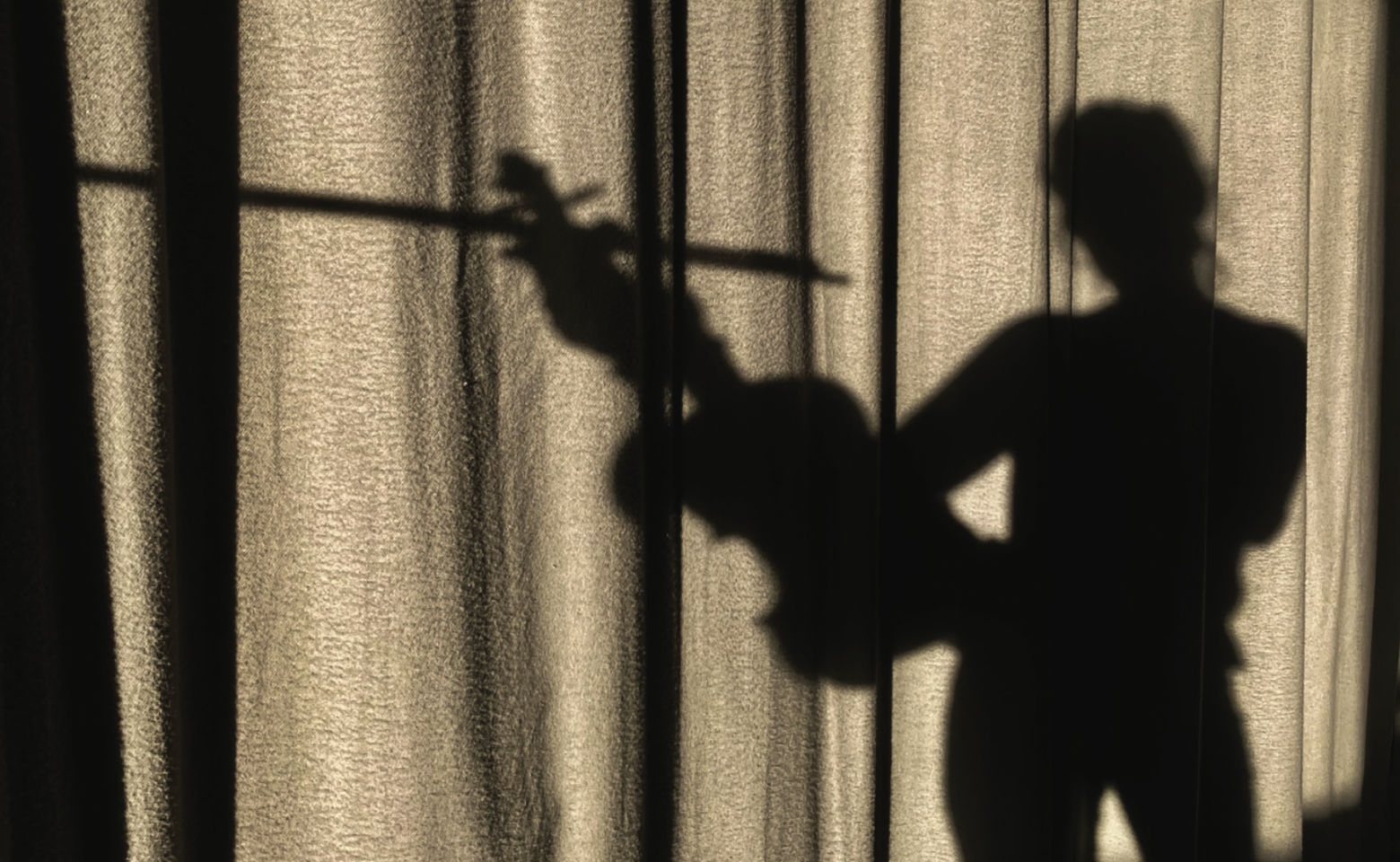Video Performance Series: Larissa O'Grady 'Six New Works for Violin'
Image: Self-portrait by Larissa O'Grady at the Tyrone Guthrie Centre.
A series of performances recorded at the Contemporary Music Centre, capturing six works commissioned by violinist Larissa O’Grady by CMC composers David Bremner, Robert Coleman, Jenn Kirby, Fiona Linnane, Anselm McDonnell and Judith Ring.
Each work was composed especially for Larissa O’Grady, developed by the artists through CMC’s Contemporary Artists Network, an initiative which supports New Music collaborations. The project led to a public performance of all six works for the ‘Sundays at Noon’ concert series at the Hugh Lane Gallery in Dublin. Larissa O’Grady recorded the music for her début album ‘Six New Works for Violin’, released on the Farpoint Recordings label and launched at the Contemporary Music Centre in November 2024.
The six new works commissioned by Larissa O’Grady were supported by the Arts Council / An Chomhairle Ealaíon.
Scroll or click on the links below to watch videos:
- David Bremner - Salient Memories (2023)
- Robert Coleman - Capturing Sound (2023)
- Jenn Kirby - Body Fragmented (2024)
- Fiona Linnane - Would be Poetess (2023)
- Anselm McDonnell - Rusted Sugar (2023)
- Judith Ring - Swept Through the Floods (2023)
David Bremner - Salient Memories (2023)
A piece dealing with statistics and memory. There is a permanently evolving, but consistent, expressive fabric; a flow of colour in the performance space. This flux is inflected with multiple salients (bumps/changes of direction) of differing amplitudes - probably too many to consciously apprehend a clear shape (to see the wood for the trees), so we have a memory of previous experiential states, rather than the events themselves.
-David Bremner
Robert Coleman - Capturing Sound (2023)
Capturing sound in its “outdoor” context triggered a culture of sonic extraction that mirrored the drive for natural resources." This quote by Mark Peter Wright is fragmented and heard throughout the work. It is a reflection on how we consume today and how the act of recording wildlife could also be considered as something extractive. Field-recording has become central to my work in recent years as I have been developing my practice of the ecological soundwalk. ‘Capturing Sound’ merges this world and ideas inherent in field-recording with my concert work. Throughout the piece using my field recording equipment I record the music and sounds on stage and play them back into the space, building up layers with which the violinist interacts. The tension between the live and recorded sound represents the distance we put between ourselves and the wild world outside. The soundworld is inspired by the drumming of the great spotted woodpecker which I have recorded in County Wicklow, Ireland.
-Robert Coleman
Jenn Kirby - Body Fragmented (2024)
Throughout the collaborative process, this piece underwent several iterations, exploring various methods of conveying musical concepts that intertwine music and movement as communications of the body. While it resists dissecting musical ideas into explicit notational instructions, it does delve into the fragmentation and disentanglement of bodily experiences. The work encompasses both live and pre-recorded elements, using a device to capture movement to shape the pre-recorded component. Themes of non-linearity and fragmentation are central throughout the piece, guiding the listener through an exploration of interconnectedness and departure.
-Jenn Kirby
Fiona Linnane - Would be Poetess (2023)
Text features strongly in my practice so I am always watching out for potential words, poems, stories to bring into my work. A few years ago, in the library at Kinnitty Castle, I came across a volume of poetry by Olive Verte called ‘In the land of make believe’ (published in 1901). I sourced a copy of the book online, with some difficulty, but could not find any other information about the poet or her work. When Larissa commissioned a piece for violin, Verte’s poem ‘Would be Poetess’ sprang to mind. It tells the tale of a determined, but possibly delusional, poet fighting for her work to be published. I adapted the text considerably, including changing it from third person to first and placed it in conversation with the violin, while aiming to keep the poem’s original tongue in cheek delivery. More than anything, this is a story of persistence.
-Fiona Linnane
Anselm McDonnell - Rusted Sugar (2023)
Microtonal harmony has always struck me as having a quality of saturated sweetness, a somewhat sickly feeling of overindulgence, due to the richness and resonance of the adjusted intervals. For my first piece properly engaging with microtonal writing, the topic of sugar therefore seemed a suitable starting point. The structure of ‘Rusted Sugar’ loosely follows a chemical process: the stages of burning sucrose sugar until its molecules break down and separate, leaving only carbon behind. The musical relationship between the violin and electronics vacillates between coalescence and disintegration, moments of harmonic or metric unity dissolving into friction before aligning again.
-Anselm McDonnell
Judith Ring - Swept Through the Floods (2023)
The piece reflects on the many environmental flooding disasters that are occurring around the world. The basic structure flows from calm to chaos and back to calm again with the violin floating along on top throughout. The ending is quite serene and somewhat mournful as the floods subside.
-Judith Ring
Swept Through the Floods and Capturing Sound featured in the award-winning radio series ‘We Only Want The Earth’ a two-part documentary produced by CMC for RTÉ lyric fm’s the Lyric Feature, exploring Irish composers’ responses to the climate and biodiversity crisis.
Video Production Credits:
Performances by: Larissa O’Grady. Capturing Sound features Robert Coleman.
Videographer: Sławek Bracki.
Audio recording: Keith Fennell.
Project coordination: Méabh Noonan
Recorded at the Contemporary Music Centre (2023–2024) © The Contemporary Music Centre.

